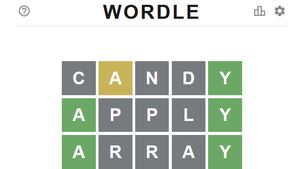JAKARTA – The Swiss central bank has successfully used digital currency to complete transactions involving five commercial banks. This was revealed by the Swiss National Bank on Thursday, January 13 in a trial of the latest technology in the wholesale market.
The trial, called Project Helvetia, could bring the introduction of a central bank digital currency one step closer in Switzerland. The country is known for having conducted some of the most advanced central bank digital currency experiments (CBDCs) in Europe.
Central banks around the world are now also stepping up their efforts to realize CBDCs, in part to make existing payment systems more efficient and to counter the challenges of cryptocurrencies. Central banks in many countries conduct research that focuses on versions of the CBDC for wholesale or retail use.
Under Helvetia, named after the Swiss symbol, the SNB integrated the CBDC into the payment system and used it in simulated transactions in experiments involving major banks such as UBS, Credit Suisse, Goldman Sachs, Citigroup, and Hypothekarbank Lenzburg.
The scheme shows that payments can be made instantly, ranging in size from 100.000 to 5 million Swiss francs (IDR 1.5 billion to IDR 78.5 billion), eliminating counterparty risk.
"We have shown that innovation can be leveraged to preserve the best elements of the current financial system, including settlements in central bank money, while also potentially unlocking new benefits," said Benoit Coeuré, head of the Innovation Bank for International Settlements (BIS).
The project, which runs for three days towards the end of 2021, also involves Swiss stock exchange operator SIX, a major provider of Swiss financial infrastructure services.
This involves issuing and redeeming wholesale CBDCs and using them for payments and for settlement of securities purchases in Switzerland as well as cross-border transactions.
This follows previous experiments conducted by SNB, BIS, and SIX into the use of digital currencies.
SEE ALSO:
While the retail CBDC will be used by households and businesses for day-to-day transactions, the wholesale version can be used to make large-scale payments between banks or other entities with central bank accounts.
Proponents of the project say wholesale CBDCs can also make the settlement of securities trades – which can take days, with multiple parties involved – more efficient.
CBDC can be programmed with instructions to provide security instantly upon receiving digital money.
While central banks in Hong Kong, Thailand, and the United Arab Emirates, as well as Singapore, have also looked at using CBDCs for wholesale cross-border payments, few have researched in detail how CBDCs will be integrated with commercial lenders.
The group involved in Helvetia will now assess the results before deciding on their next steps.
The English, Chinese, Japanese, Arabic, and French versions are automatically generated by the AI. So there may still be inaccuracies in translating, please always see Indonesian as our main language. (system supported by DigitalSiber.id)


















